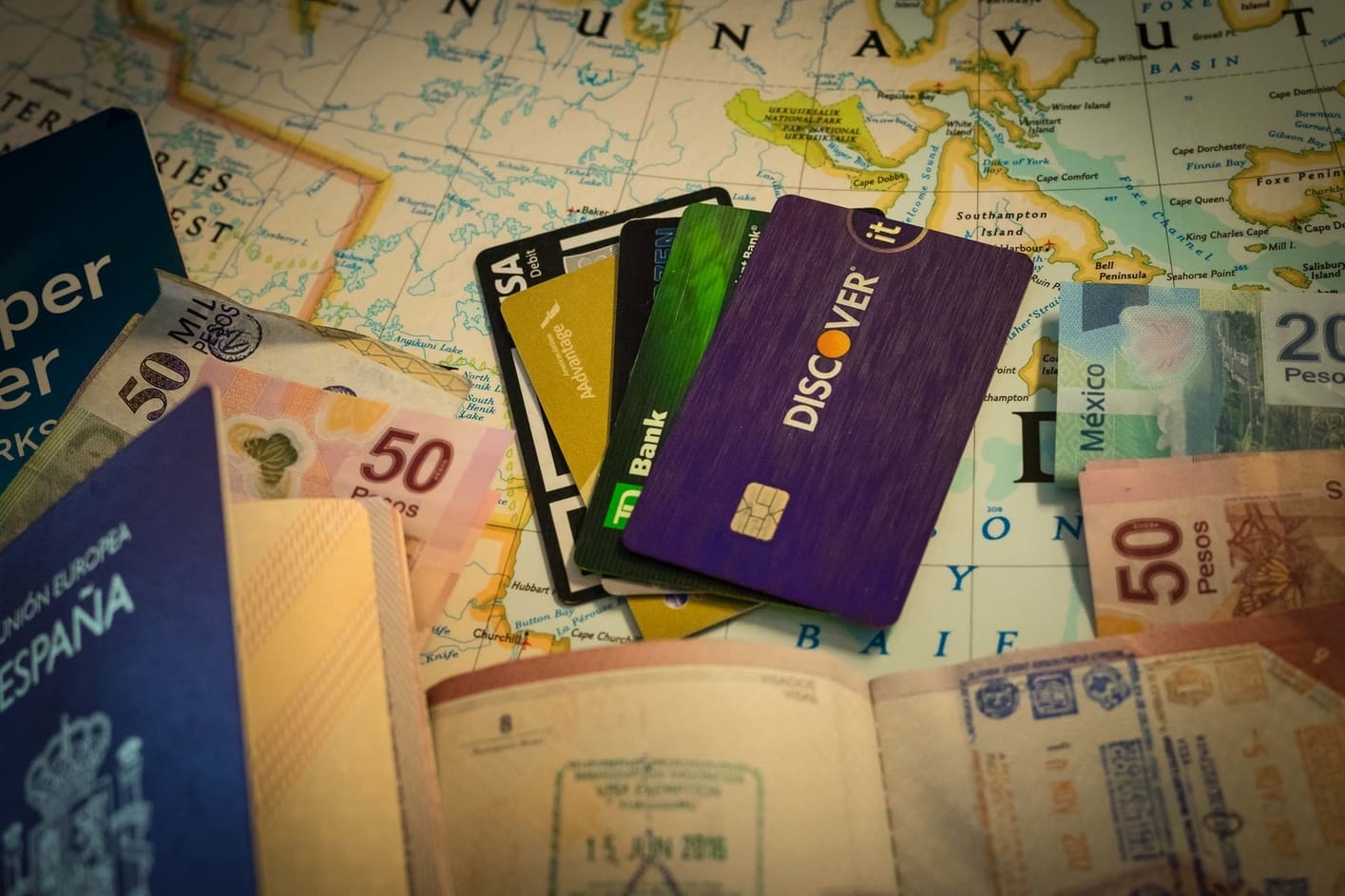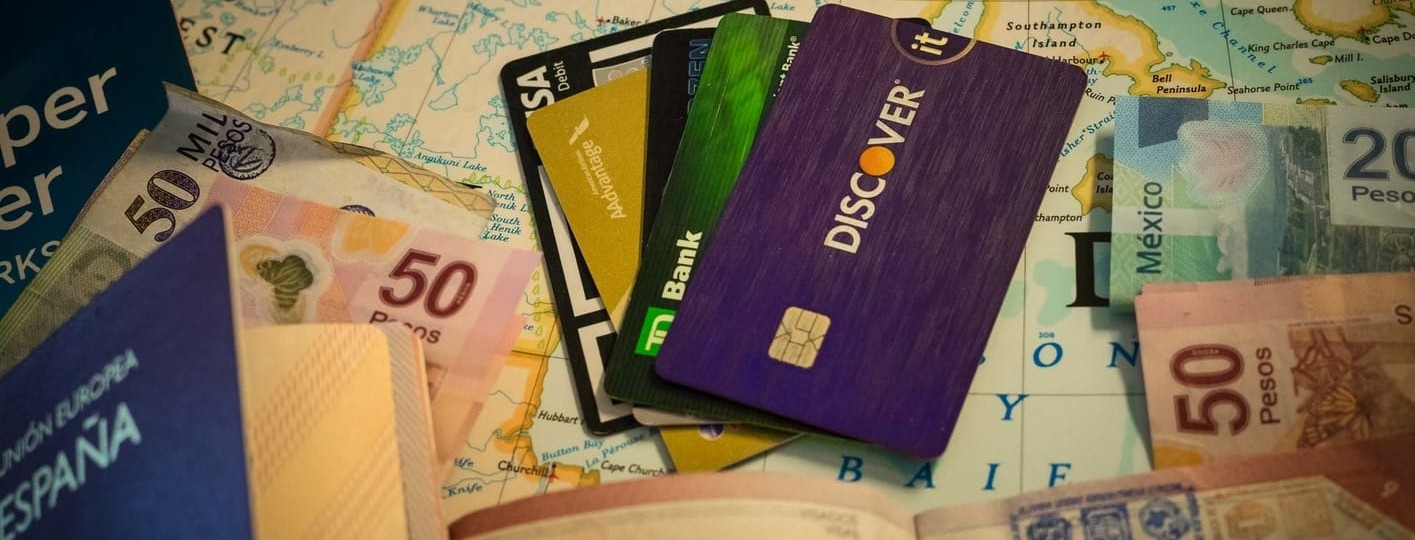When traveling abroad, get a policy from one of the best travel insurance companies. You can get a 5% discount on Heymondo, the only insurance that pays all medical bills upfront for you, HERE!
While using your travel credit card, you’ll notice that it has point values that you earn for your purchases. Depending on which card you have, the value of each point will vary, although it typically ranges from 0.5 cents to 2 cents per point.
In short, not all points are created equally, and it’s just one of the factors to consider when choosing a card. We also have a guide about the best travel credit cards that compares welcome offers, annual fees, rewards rates, and more, so check that out for more information.

Compare the Value of Credit Card Points & Miles
You may be wondering, what about travel miles? Well, when it comes to miles vs. points, there isn’t much difference since both are card currencies that you can redeem. So, think of your points and miles as a currency that you can exchange for flights, hotels, car rentals, cash back, and more.
It can be confusing at first, but the miles and points valuation system isn’t as complicated as it seems. In this guide, I’ll share what to know about travel points, how much they are worth, and how to make the most of your earned miles and points.
Credit card miles vs. points values
Again, travel points and miles are essentially the same things. Depending on which card you have, you may earn airline miles or travel points that you can use for a variety of rewards:
- Plane tickets
- Hotel bookings
- Rental cars
- Other travel expenses
- Statement credits
- Cash back
- Shopping
- Gift cards
- Merchandise
The value of credit card points and miles varies by provider, so I’ll share some common point valuations below for you to compare.
Points valuations – How much are miles worth?
Generally speaking, you can calculate the credit card point value by dividing the plane ticket or hotel booking price by the number of points required to redeem it. For example, if it took 100,000 points to get a $1,300 plane ticket, then the points value is around 1.3 cents per point.
We always try to redeem our points for travel expenses like flights, hotels, and rental cars since the average value is higher. In other words, you’ll get more for your miles if you exchange them for travel rather than cash back or gift cards.

Points valuations – How much are miles worth?
Also, if your card provider is partnered with other airline or hotel programs, you can maximize the value of your points by transferring them to the partner program. You can get a better idea of how much credit card points are worth by looking at the tables below.
Airline miles/airline credit cards
If you fly often and prefer a certain airline over another, you might want a credit card that earns airline miles. You can redeem them for plane tickets, and many of them also allow you to use them for hotels, rental cars, and other travel expenses.
In addition to the airline miles value, these cards offer extra benefits like airport lounge access, free checked bags, priority seating, and more. If you’re not sure whether airline miles are worth it, check out the average values per mile for some popular cards:
AIRLINE CREDIT CARD | AVERAGE VALUE PER MILE |
|---|---|
Up to 2.04 cents |
|
Up to 1 cent |
|
Up to 1.5 cents |
|
AVERAGE VALUE PER MILE |
|
Hotel points/hotel credit cards
Similarly, hotel point values vary with each card. If you have a hotel chain that you’re loyal to, it could be worth getting one of these types of travel cards. You can redeem your points for room and suite bookings, as well as other travel expenses.

Hotel points/hotel credit cards
In particular, I recommend the Marriott Bonvoy Bold Credit Card since the Marriott Bonvoy points values are quite good:
HOTEL CREDIT CARD | AVERAGE VALUE PER POINT |
|---|---|
Up to 1.05 cents |
|
MARRIOTT BONVOY POINTS VALUES |
|
Other travel points and rewards
The most common credit card points values come from generic travel credit cards like the American Express Gold Card and Chase Sapphire Preferred. These travel rewards point values range from around 0.5 cents to 2 cents per point or mile, and as you’ll see from the table below, you’ll get more value if you use them for travel expenses.
If you’re still thinking about which travel credit card to get, consider each card’s travel partners, especially if you prefer flying with a certain airline or staying with a specific hotel.
For instance, Chase Ultimate Rewards lets you redeem your points for travel or transfer them to one of a handful of partner airlines and hotels, like Marriott. Moreover, American Express Membership Rewards is partnered with over 20 airlines and hotels.
These aren’t the only examples, but they give you a better idea of how you can take advantage of your points values and get maximum benefits and rewards. You can also see how many travel points per value you’ll receive from some of the top cards in the chart below.
CREDIT CARD | AVERAGE VALUE PER POINT/MILE |
|---|---|
Up to 2 cents for travel |
|
Up to 1 cent for travel |
|
Up to 1.85 cents for travel |
|
Up to 1.85 cents for travel |
|
Up to 1.85 cents for travel |
|
Up to 1.85 cents for travel |
|
Up to 1.5 cents for travel |
|
Up to 1.5 cents for travel |
|
Up to 1.7 cents for travel |
|
Up to 2 cents for travel |
|
Up to 1.5 cents for travel |
|
CREDIT CARD POINT VALUES |
|
How to make the most of credit card points values
When it comes to the value of credit card points, you’ll get the most bang for your buck if you redeem them for travel expenses like flights and hotels. Make sure to redeem your points through your card provider’s travel rewards program to maximize your earnings. For example, American Express cardholders should go through the Amex Travel Portal, while Chase clients should go through Chase Ultimate Rewards.
It’s also worth checking if your credit card company is affiliated with other travel partners or loyalty programs. Many major card providers have transfer partners in addition to their specific travel programs, so you can get the highest possible value for your points or miles. Amex credit card point values can be applied to Delta, Marriott, and more, while Citi’s travel partners include JetBlue and Wyndham, among others.

How to make the most of credit card points values
Another thing to keep in mind is that you can use your points for cash back via a statement credit or a direct deposit into your checking out. While it’s an easy process, you won’t get as much value as you would if you redeemed the points for travel, and you’ll get even less value if you exchange your points for gift cards or shopping credits.
To sum up, use your points values for travel rewards, transfer them to travel partners if you can, and swipe your credit card for everyday purchases to rack up as many points as possible.
FAQs about points valuations
If you’re still not sure about credit card point values, here are the answers to some commonly asked questions.
I hope this guide gave you a better understanding of point values and how to use airline miles wisely. Please also make sure you use a no foreign transaction fee credit card when you’re abroad. Otherwise, you will spend more than the miles you will earn!
Don’t hesitate to leave me a comment if you have more questions about credit card point values and how to use them! Until then, enjoy saving on your next trip!











